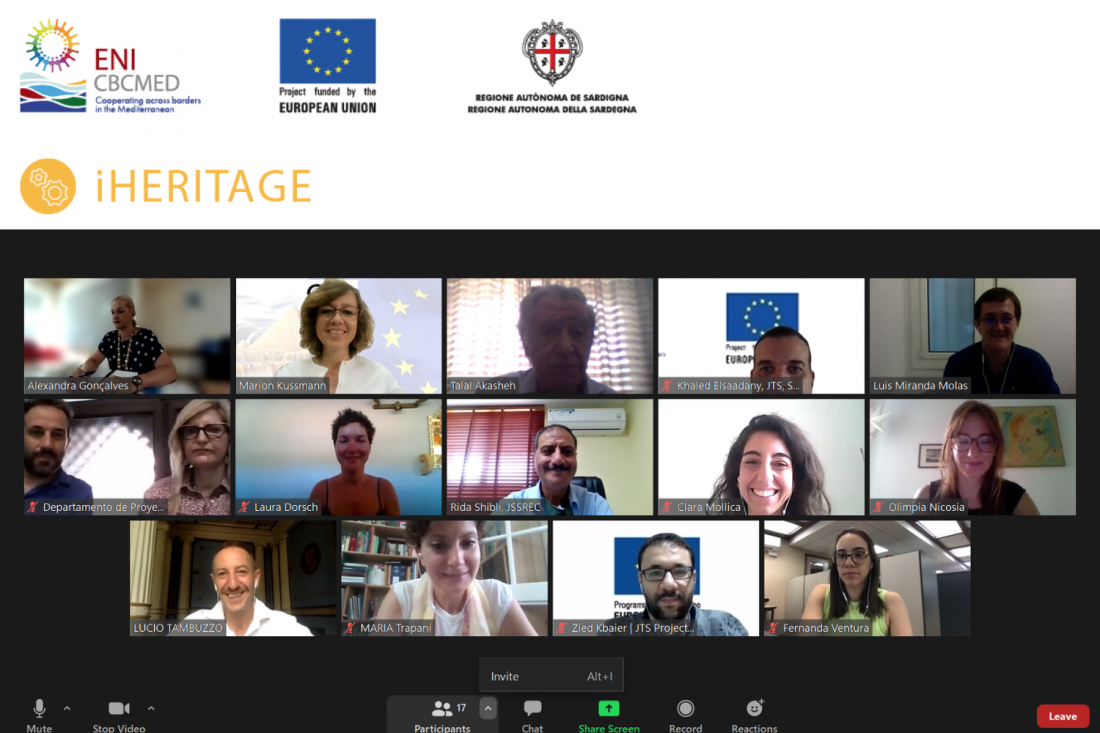iHERITAGE améliorera l'accès aux sites du patrimoine mondial de l'UNESCO en région méditerranéenne grâce aux outils TIC

Ce contenu est disponible uniquement en anglais
Representatives from 6 Mediterranean countries working closely together on the development of an ICT Mediterranean platform for UNESCO cultural heritage under the EU-funded iHERITAGE project, met for the project's 2nd Steering Committee Meeting held on the 13th and 14th of July. The 2-day event was hosted by the project's Portuguese partner, the University of Algarve and due to the pandemic was held online.
During the two consecutive days, project team members discussed various pending issues and topics such as:
- the further activation of the Living Labs, which will introduce and highlight the changes new ICT technologies will make and transform the cultural and tourism sectors in the Mediterranean region,
- potential project promotion in online events held in each of the 6 participating countries
- the establishment of spin-offs, which will operate and sell across borders and will receive a wide range of facilitations, such as: access to an Augmented and Virtual Reality (AR/VR) web platform, participation to international fairs and business events, meetings and contacts with venture capital funds and business angels, training and funding
The iHERITAGE project is set to make numerous positive changes and offer significant benefits for people of various backgrounds who will be directly and indirectly affected by the ambitious project activities and outputs in terms of enhanced accessibility to UNESCO world heritage sites, the creation of multiple job opportunities as well as the direct integration of researches among universities, researchers and SMEs into the world of ICT and cultural heritage, to name a few.
It is expected that around
- 300 researchers and ICT specialists, who are working on commercializing their research concepts,
- 300 personnel from government agencies, who will be given specific training courses to help strengthen their hard and soft skills so that they can work in an international setting,
- 6,000 NEETS (Not in Education, Employment, or Training), young people and women,
- 10 million tourists visiting UNESCO cultural sites included in the project,
- 2 million general end users, who will be able to access the AR/VR multimedia contents created for UNESCO cultural heritage online and off site,
- Managers and staff of UNESCO sites
- Universities, researchers, SMEs and spin-offs
will all be direct beneficiaries of the ambitious and surely successful outcomes of the iHERITAGE project.







